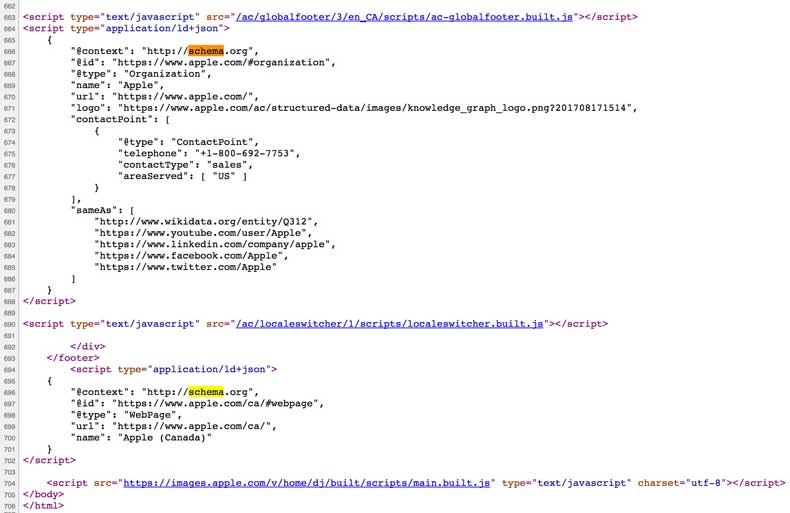If you’ve read anything about web marketing in the last couple of years, you’ve heard plenty about SEO. Chances are, you’ve already got your site optimized for target keywords. You’ve already started a blog. Maybe you’re even starting to see results.
But if that’s all you’re doing, you’re selling yourself short. If you want to make it all the way to the top of the SERPs, you’re going to incorporate some expert SEO strategies. More specifically, you’re going to need to good use of schema and structured data.
What Is Schema?
Schema might sound like some forgotten alien race in the Star Trek universe, but it’s really not that complicated. Schema refers to a series of HTML codes that tells search engines that some of the on-page information is significant. This could be your company name, your address and phone number, or any associated social media profiles. If you’ve ever searched Google for a business, you’ve probably noticed that some of the results have extra information attached. For instance, it might display the business’s open hours.
Search engine algorithms are quite sophisticated, but they aren’t quite intelligent enough to pull that information from the plain text of the site. Instead, they search through pages’ base code for schema or structured data.
Why Should I Structure My Data?
You might not think it’s that important to implement schema into your page. After all, customers can find all of that information on your website. They don’t need it to show up on Google SERPs. But there are a few reasons why that’d be unwise.
Local Searches
While schema doesn’t exactly affect your search rankings, it does give a huge boost to local searches.
If your business has a brick-and-mortar location, local Google searches are your best friend. Say you run a Thai restaurant. If a customer is looking for Asian cuisine near them and you haven’t implemented expert SEO strategies on your website, your restaurant could be missing altogether from their search results.
Guess how that’s going to affect business?
Expert SEO strategies like schema and structured data let search engines know your location without needing to scan the visible text for keywords. Never get left off of a local search again.
Access to Information
As a business owner, you want your customers to have as much information as possible. You want them to know your hours, your phone number, your address, the price of your goods. The fewer obstacles you can put between your customers and your business’s information, the better.
So why hide anything behind a click to your website when you can put it directly on the SERPs?
When your customers can call you directly from a Google result, you’ll be sure to get more calls than if they have to click through to your homepage, then to your contact page to find your number.
If your website features a review section, you can even use structured data to put your aggregate customer ranking right onto your listing on SERPs.
Show potential customers your top reviews before you even get them on your site. And as a bonus, sites with visible rankings get higher.
How Can I Structure My Data?
You might be completely on board with the idea of schema and structured data, but words like, “HTML” and “base code” have you panicked. You feel fine blogging and targeting keywords, but expert SEO strategies that deal with coding are a little over your head.
But don’t worry. There are a number of free resources available to help do the work for you.
Many hosting platforms like WordPress have plugins that will help you identify the information needed for structured data and generate the code necessary for the schema.
Google even has its own free tools. Their Structured Data Markup Helper allows you to tag information right from your website. It will then generate the necessary HTML code for you.
All you have to do is copy the code and drop it into your website editor. If that’s something you don’t feel comfortable tackling yourself, don’t worry: an expert SEO firm will have no problem with it.
Do I Still Need to Keep Working on SEO?
Once you start implementing schema and structured data, you might be wondering if that means you’re off the hook for blogging and keyword optimization. Why should you still spend all that time creating content if your site’s schema already lets Google know all about your business?
While structured data makes a huge difference in your rankings on local searches, it is not the be-all-end-all of SEO strategies. Your customers will still be using keywords as search terms. You don’t want to let those searches pass you by just because you’re focused on schema now.
Also, structured data doesn’t state Google’s hunger for fresh content. Frequently updated sites will still boost your rankings in the SERPs. Expert SEO techniques won’t change that. Schema is an incredible tool, but it doesn’t replace a consistent SEO strategy.
Put More Expert SEO Techniques in Your Toolbox
SEO doesn’t stop once you get to the top of the SERPs. Structured data and schema are powerful methods of increasing your click-through rate and turning leads into customers. Whether you’ve mastered basic SEO techniques and need help taking your web presence to the next level, or if you’ve tried to drive traffic to your site through a blog or keyword optimization to no avail, we can help.
We can handle all of your content creation, video marketing, and even logo design so you can focus on your business.
Contact us today to start a project with us!









